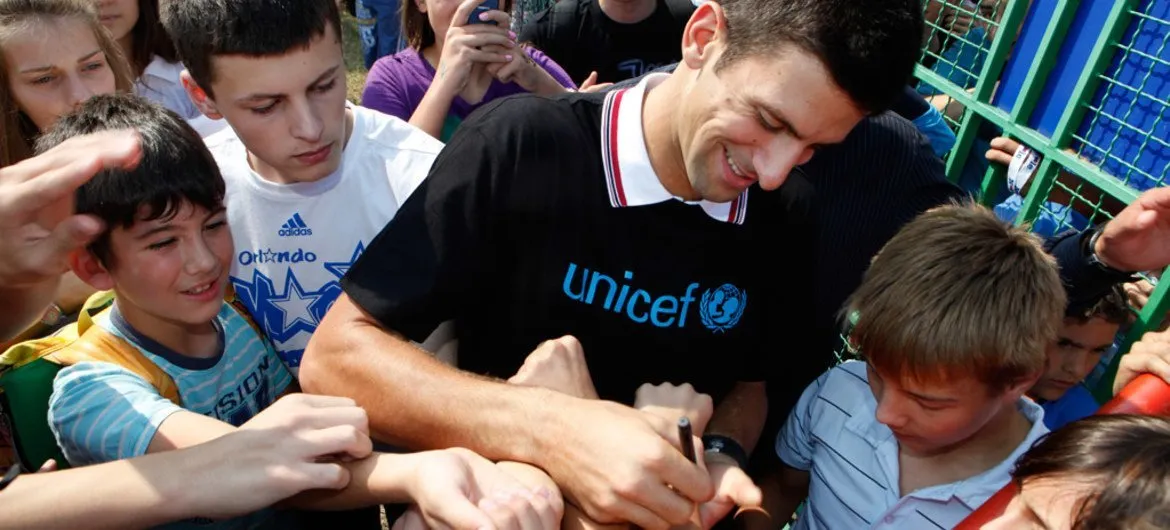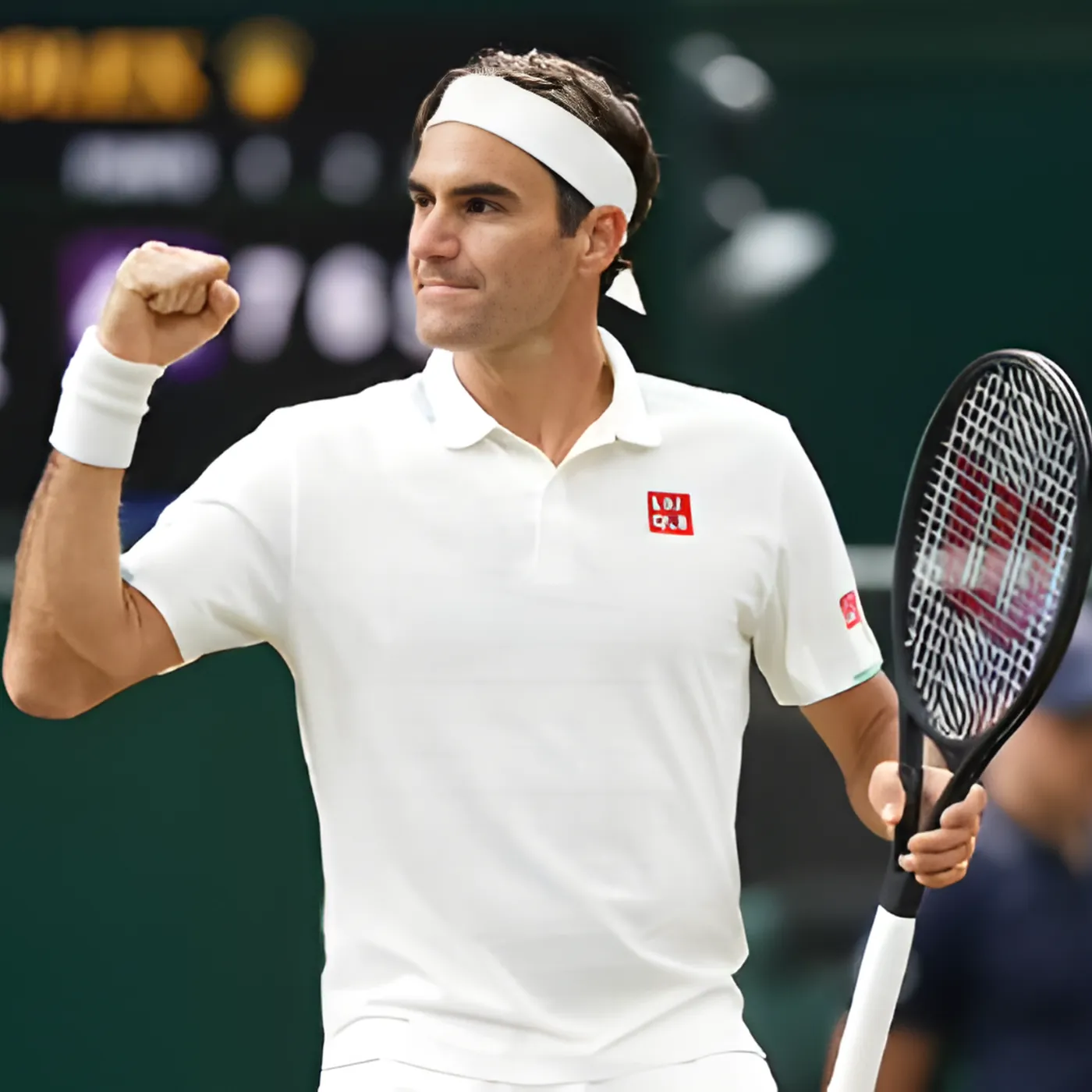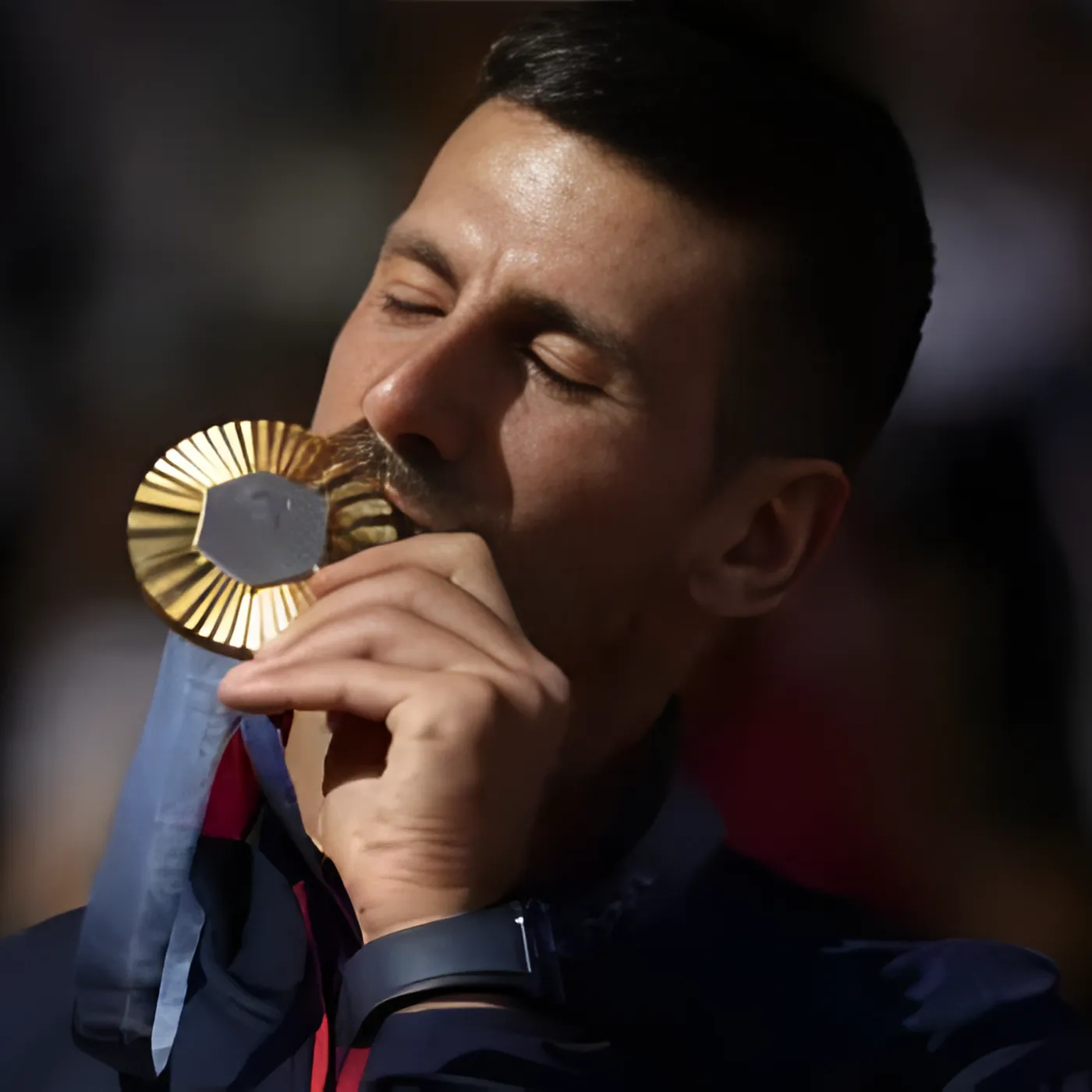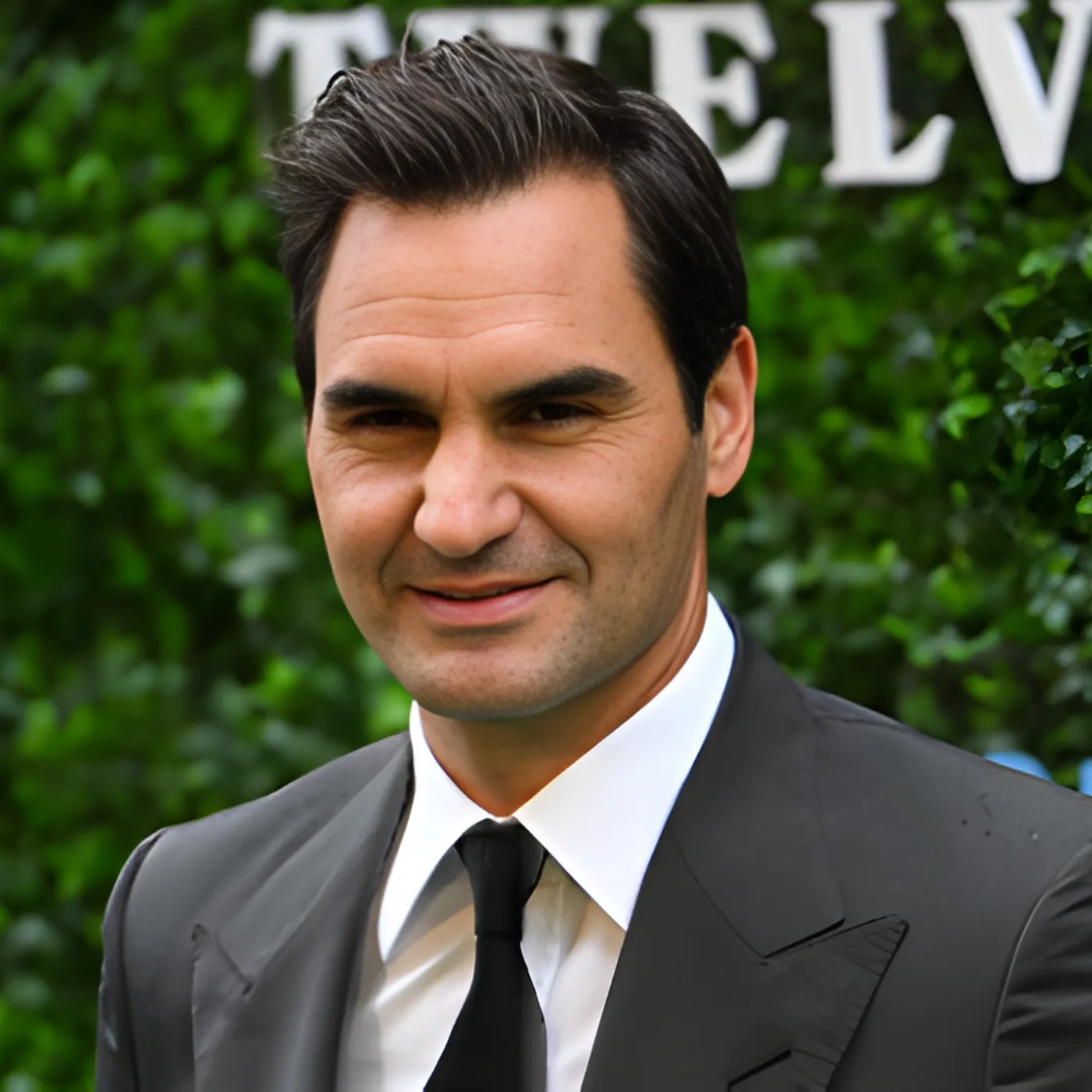

Novak Djokovic Proves Sports Are More Than Just Numbers — From ‘Tennis Villain’ to a Global Icon Loved for His Heart and Humanity
In the glittering world of professional tennis, where Grand Slam titles, win-loss records, and statistics often dominate headlines, there exists a story that transcends mere numbers. It is the story of Novak Djokovic, a man once branded the sport’s “villain,” who has gradually rewritten his legacy not only through unmatched athletic brilliance but also through a profound display of heart, compassion, and humanity. Djokovic’s transformation from a player many fans loved to hate into a global icon admired far beyond the confines of a tennis court represents a fascinating narrative about the power of authenticity, resilience, and human connection in modern sports.

The Early Labels and the ‘Tennis Villain’ Image
When Novak Djokovic burst onto the tennis scene in the mid-2000s, the stage was already dominated by two titans: Roger Federer and Rafael Nadal. Their rivalry was the stuff of legend, producing unforgettable battles and commanding a loyal following that spanned the globe. Fans were emotionally invested in their story, and any newcomer who dared disrupt that harmony faced an uphill battle for public affection. Djokovic, with his animated on-court personality and unapologetic self-belief, was quickly cast as the outsider — the “villain” in a sport seemingly defined by the elegance of Federer and the humility of Nadal.
The Serb’s early career was marked by a mixture of undeniable talent and a brash confidence that rubbed some spectators the wrong way. His imitations of fellow players, though often intended humorously, were misinterpreted by some as arrogance. Add to that his frequent physical struggles early in matches, where he would call medical timeouts, and critics pounced on him, labeling him as theatrical or even insincere. In the eyes of many, Djokovic was the disruptor challenging the beloved duopoly of Federer and Nadal — and not everyone was ready to embrace him.
Yet beneath the surface of this polarizing figure was an athlete of extraordinary determination, a player who had risen from war-torn Serbia to the very pinnacle of tennis. The narrative of the villain was, in many ways, an oversimplification. Still, for years, Djokovic carried that image like a shadow as he fought to carve out his place among the game’s greats.
Dominance on the Court — and the Price of Greatness
As the years passed, Novak Djokovic began to dominate men’s tennis in a way few had before. His physical conditioning, mental resilience, and near-flawless technique propelled him to the top of the rankings. Winning Grand Slam after Grand Slam, he dismantled the notion that tennis was solely Federer and Nadal’s kingdom.
By the late 2010s, Djokovic had not only joined the conversation about the Greatest of All Time but, statistically speaking, had surpassed his legendary rivals in several key areas. His record-breaking weeks at world No. 1, his head-to-head advantage over both Federer and Nadal, and his career-long consistency painted the picture of an athlete whose achievements could no longer be ignored.
And yet, for all his dominance, public adoration lagged behind. Crowds still overwhelmingly cheered for his opponents. At Wimbledon, at the US Open, even at tournaments where he was defending champion, Djokovic often found himself battling not just the player across the net but also the energy of thousands rooting for the other side. The more he won, the more resistance he seemed to face from certain corners of the tennis world.
But this dynamic, rather than breaking him, revealed the depth of his mental fortitude. Time and again, Djokovic would raise his level under pressure, silencing hostile arenas with performances of staggering brilliance. Slowly, people began to see a different side of him — a competitor whose resilience and determination bordered on the superhuman.
The Turning Point: A Man Beyond the Numbers
What ultimately began to shift public perception, however, was not merely Djokovic’s accumulation of titles, but the growing realization that behind the fierce competitor was a man of remarkable kindness and generosity.
During the Australian bushfires in 2020, Djokovic was among the first athletes to pledge significant financial support for relief efforts. Throughout the COVID-19 pandemic, he quietly donated to hospitals and funded medical equipment in both Serbia and Italy. His foundation, the Novak Djokovic Foundation, has long worked to provide early childhood education and resources to underserved communities, reflecting his deep commitment to giving back.
Then there were the smaller, more personal gestures: staying long after matches to sign autographs for children, sharing heartfelt moments with ball kids, embracing opponents in defeat, and speaking openly about the mental and emotional challenges athletes face. These glimpses of human vulnerability stood in stark contrast to the early caricature of Djokovic as tennis’s cold, calculating villain.
In press conferences, he began to speak not just about tennis but about life, philosophy, and gratitude. He talked about mindfulness, mental health, and the importance of empathy — topics rarely addressed so candidly by athletes at his level. Slowly but surely, the narrative was shifting. Novak Djokovic was becoming more than a champion defined by numbers; he was emerging as a humanitarian, a voice of wisdom and compassion in a hyper-competitive sports world.
From Villain to Global Icon
One moment often cited as symbolic of Djokovic’s transformation came after his 2021 US Open final loss to Daniil Medvedev. Chasing a historic calendar-year Grand Slam, Djokovic fell short in straight sets. Yet what stood out was not the defeat itself, but the crowd’s reaction. For the first time in his career, the New York audience — often notoriously tough on him — erupted in a wave of support, chanting his name even as he sat on his bench in tears.
It was as if years of misunderstanding had melted away in a single evening. Fans saw the human being behind the trophies — a man who had given everything to his sport, who had carried the weight of history on his shoulders, and who had shown grace even in crushing disappointment. Djokovic himself later said that the moment made him feel “like the luckiest man alive,” despite the loss.
Since then, his popularity has soared. Crowds cheer louder. Interviews reveal warmth and humor. Social media, once a space filled with debates about his likability, now overflows with admiration for his longevity, dedication, and the values he represents. The so-called “tennis villain” had become, almost imperceptibly, one of the sport’s most beloved figures.
The Legacy of Heart and Humanity
Today, as Novak Djokovic continues to break records deep into his 30s, his story stands as a powerful reminder that sports are ultimately about more than just numbers on a scoreboard. Yes, he may finish his career with the most Grand Slam titles in history. Yes, his name will dominate statistical leaderboards for decades to come. But what truly defines Djokovic now is the way he has used his platform — to inspire, to help, to connect on a human level.
Young players look up to him not only for his athletic greatness but also for his emotional openness and generosity of spirit. Fans who once booed now applaud. Even rivals speak with admiration about his professionalism and the depth of his character.
In an era where public figures are often reduced to soundbites and highlight reels, Djokovic offers something deeper: the image of a man constantly evolving, willing to confront criticism, learn, grow, and ultimately win people over not through perfection, but through authenticity.

Conclusion: More Than Just a Champion
The journey of Novak Djokovic from “tennis villain” to global icon reveals a truth that transcends sports: greatness is not just about victories, titles, or records. It is about the ability to touch lives, to show resilience in the face of doubt, and to demonstrate compassion when the world is watching — and even when it isn’t.
Djokovic’s career will, of course, be remembered for its staggering achievements. But perhaps more importantly, it will be remembered for how he transformed perceptions, broke down barriers of misunderstanding, and proved that even in a fiercely individual sport like tennis, the heart matters as much as the head and the hand.
In proving that sports are more than just numbers, Novak Djokovic has cemented his place not only in the record books but also in the hearts of millions, leaving a legacy defined as much by humanity as by history-making triumphs.


















